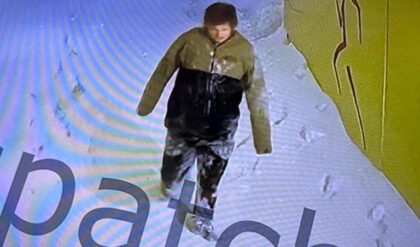This article contains spoilers.
After going viral on TikTok in 2020, the Menendez brothers have once again captivated public attention, decades after their series of trials in the 1990s. This time, creators Ryan Murphy and Ian Brennan’s spectacle of a biopic has thrust the brothers into the spotlight. But “Monsters: The Lyle and Erik Menendez Story” approaches the infamous case like we’re still living in the 1990s, even though the public’s understanding of sexual abuse and trauma has evolved. Murphy and Brennan subject their audience to a whirlwind of a miniseries, ultimately asking the viewers to choose between two black-and-white interpretations of the case.
“Monsters” tells the story of the Menendez brothers, who murdered their parents Jose and Kitty in their Beverly Hills mansion. During the trial, the brothers revealed that their parents had sexually, physically and emotionally abused them throughout their childhood. While a second trial ultimately convicted the brothers, supporters continue to advocate for Lyle and Erik’s release.
“Monsters” is captivating, with stunning cinematography that transports the audience to its sunny California landscape. Actor Nicholas Chavez is explosive as Lyle, and Cooper Koch, who plays Erik, delivers a magnetic one-take performance in the fifth episode where he recounts the years of sexual abuse.
But in trying to cast such a wide net, “Monsters” quickly gets bogged down. It’s laborious to get through scenes with journalist Dominick Dunne, played by Nathan Lane, who covered the trials extensively for Vanity Fair, often with a strong bias in favor of the prosecution. Dunne’s role is to almost exclusively deliver monologues at cocktail parties where he criticizes the justice system. “Monsters” also flits between tones indecisively, giving the audience whiplash. For instance, scenes depicting horrific child abuse are interspersed with Chavez frantically trying to clean his toupé from his jail cell with his brother’s toothbrush.
“Monsters” traps the viewers with its expert use of the Rashomon Effect, named after the 1950 film “Rashomon,” which depicts a murder from four contradictory perspectives. After nine episodes, the audience is stuck in a state of limbo, torn between two opposing realities. Were Jose and Kitty the violent, abusive monsters Lyle and Erik testified they were? Or were Lyle and Erik the boys who cried abuse and gave Oscar-worthy performances at the witness stand?
This duality is best represented by a scene in the final episode, where the prosecution mentions a doctor’s report that stated Erik had a bruise in the back of his throat as a child. The gravity of the accusation is quickly undermined when Koch falls on his face while sucking on a popsicle, offering an alternate explanation for the bruise.
“Monsters” asks you to decide who the victims truly are, but this approach lacks nuance and compassion. In order to make the Rashomon Effect believable, “Monsters” leaves out key pieces of information and obfuscates the facts of the case, including new evidence that has come to light and led to a new court hearing set for Nov. 29 — 28 years after their conviction.
And while Erik’s trauma is given the magnitude it warrants in the fifth episode, the “Monsters” version of Lyle is angry, deceitful and manipulative and his testimony is largely ignored and undermined.
Even a talented cast and snappy writing cannot rescue the miniseries from its controversy and ethical dilemmas. Behind “Monsters’” bright facade is a show that fails to approach the Menendez brothers’ story with the complexity it deserves.
